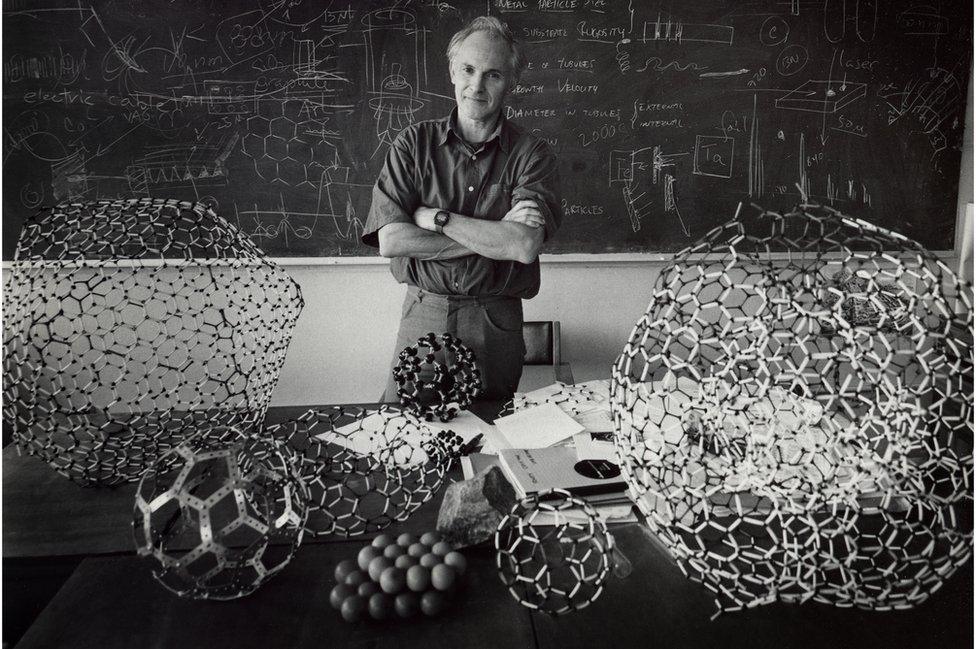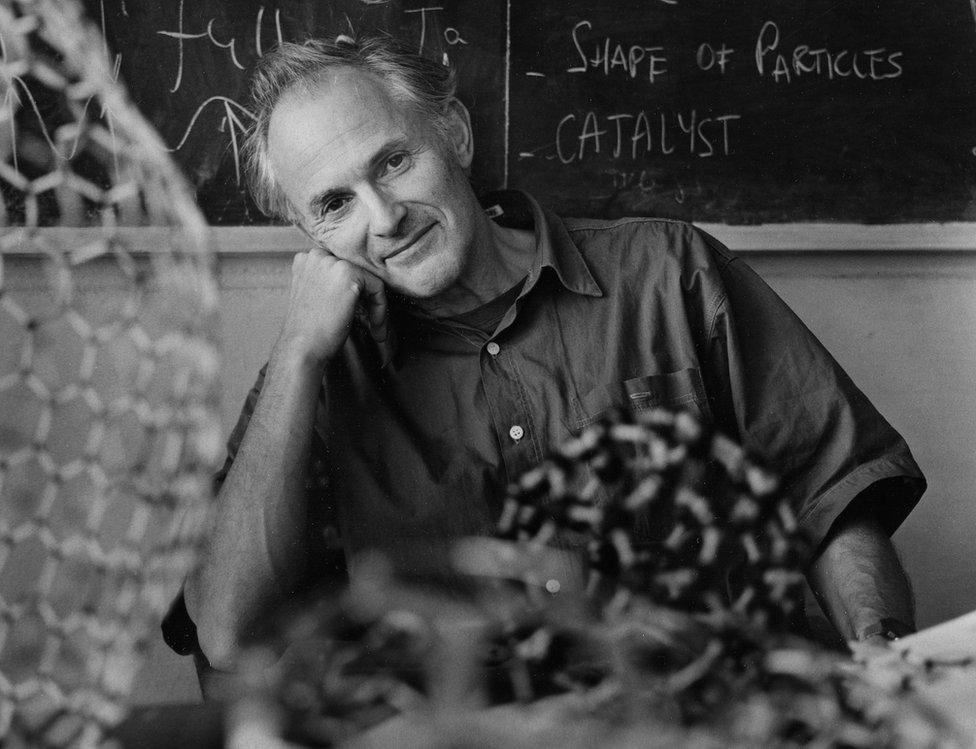Tributes for Nobel prize chemist Harry Kroto
- Published

Sir Harry named his molecules "Buckminsterfullerene" after the similarly shaped buildings designed by the American architect Buckminster Fuller
The science community has been paying tribute to Prof Sir Harry Kroto, who passed away over the weekend aged 76.
Sir Harry won the Nobel Prize for Chemistry in 1996 for the discovery of carbon molecules in the shape of a ball, popularly known as "bucky-balls".
These molecules are the "third type of carbon" - with the first two types being graphite and diamond.
The discovery opened up new avenues of research, ranging from improving rocket fuels to improving AIDS treatments.
In 2010, bucky-balls were identified by astronomers in deep space in a cloud of cosmic dust surrounding a distant star.
Prof John Maier of the University of Basel, Switzerland, was among the scientists who confirmed the result. He recalls telling Sir Harry of the development.
"When I told Harry he was very emotional. He said, 'John, you've made me a very happy man'."

Sir Harry was a humanist who said he had three religions: Amnesty Internationalism, atheism, and humour
Sir Harry famously remarked that religion made no sense to him. Fellow humanist Prof Richard Dawkins said Sir Harry's "hatred of religion was matched by, I think largely inspired by, his equally passionate love of science and his commitment to sharing his enthusiasm.
"It's often been said that scientists need the curiosity of a child. Harry had that, in spades, together with the childlike imagination of an artist, and he was indeed an accomplished creative artist who won many awards for his graphic designs. But he also had the rebelliousness of youth which never left him."
Sir Harry was a former president of the Royal Society of Chemistry.
Dr Robert Parker, the RSC's chief executive, said: "While he was clearly a brilliant scientist, it wasn't his only passion and his abiding interest in art and design filtered through to influence innovative journal covers and finding new ways to approach big problems."
Many of his former students remember him as an inspirational teacher, among them is Jonathan Hare: "He was an interesting mix of chemistry, spectroscopy and astronomy - he had all these interests. He loved solving puzzles, and everything is interesting when you have someone who's interested and can show it you."
Sir Harry was passionate about the importance of communicating science, especially to children.
Diana Leitch, a chemist and trustee of the Catalyst Science and Discovery Centre in Widnes, recalled an outreach event attended by Sir Harry in 2014. There were a hundred children present from a school in special measures, many of them from very deprived backgrounds
"Those children we so inspired by Harry that quite a few of them are coming along to an after-school science and engineering club with Royal Society of Chemistry funding. Some of their parents even came."
Many who knew Sir Harry recall what a nice man he was. Among them is Prof Don Huffman from the University of Arizona, US, who was a fierce professional rival.
"In science, there are usually repercussions that are bitter. But the thing that I'm extremely proud of is that we came out of this as friends. I really treasure that.
"He was a visionary scientist. He was a terrific spokesman for science. He was just a good person."
Follow Pallab on Twitter, external
- Published22 July 2010